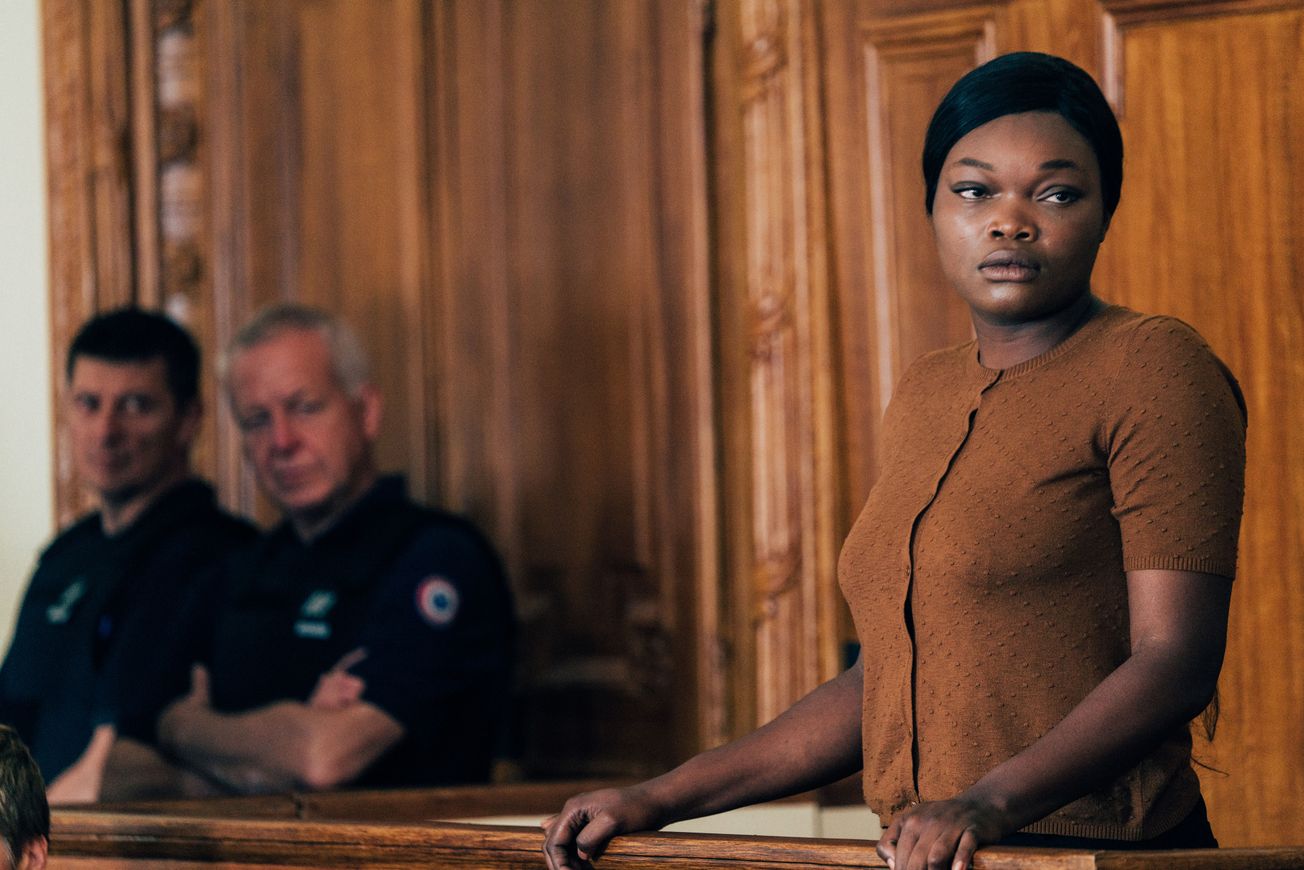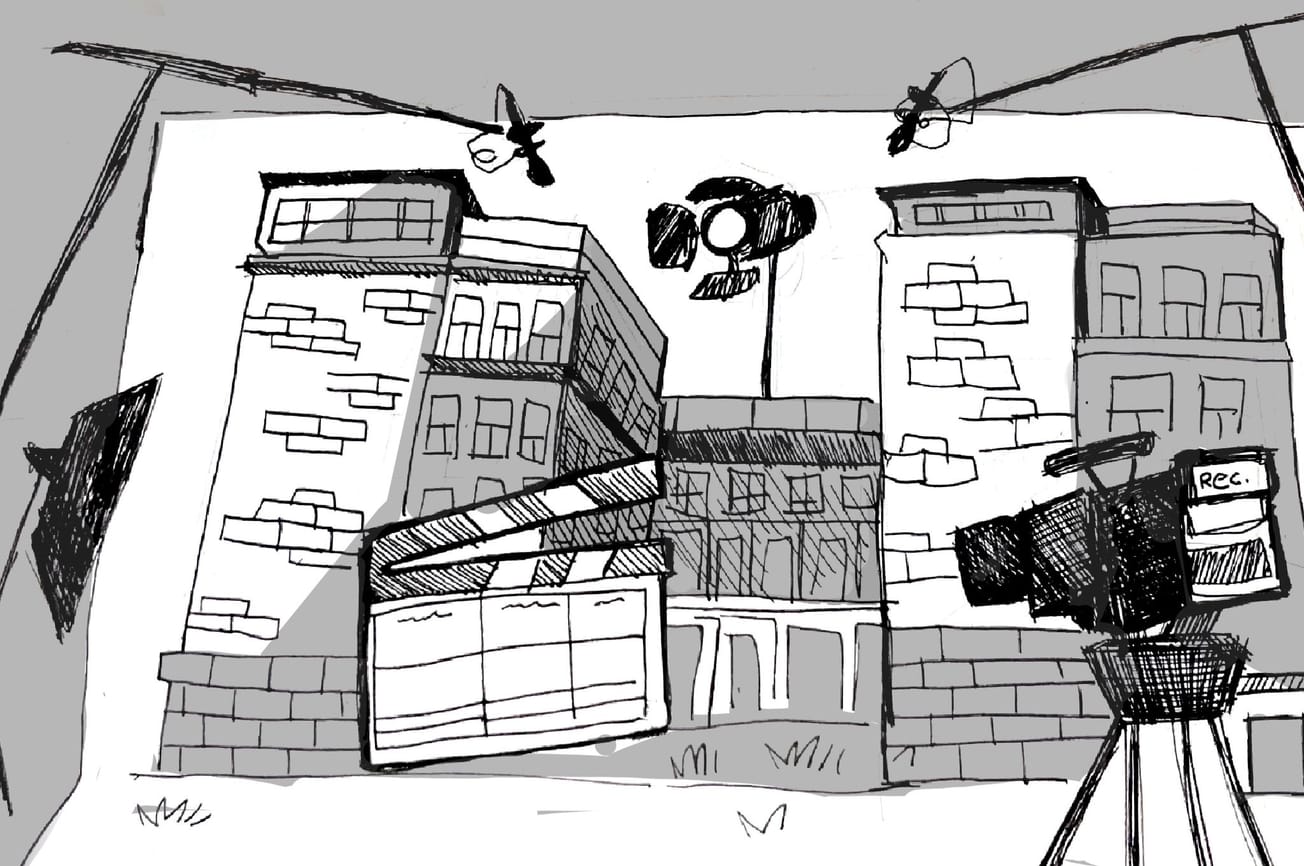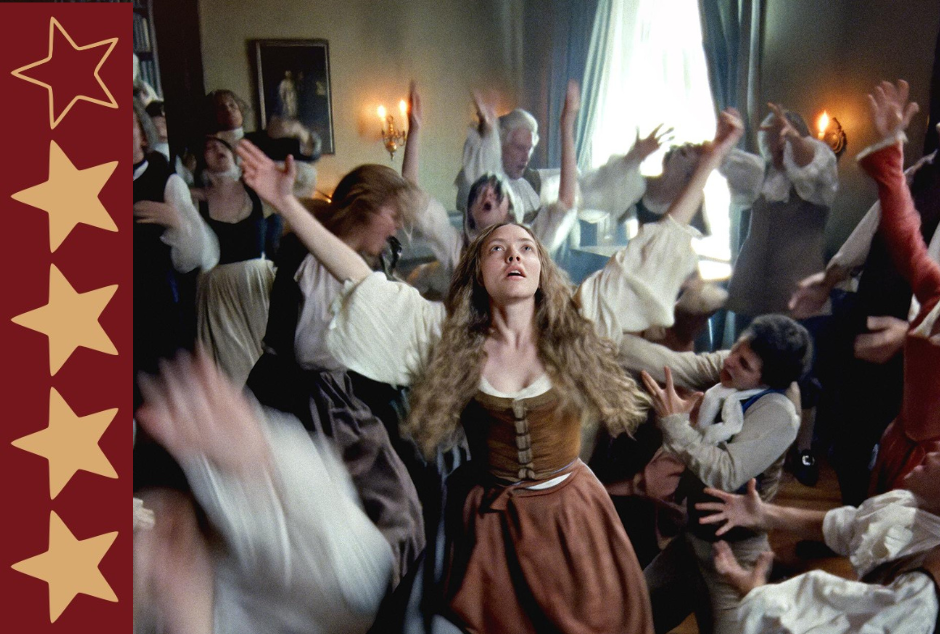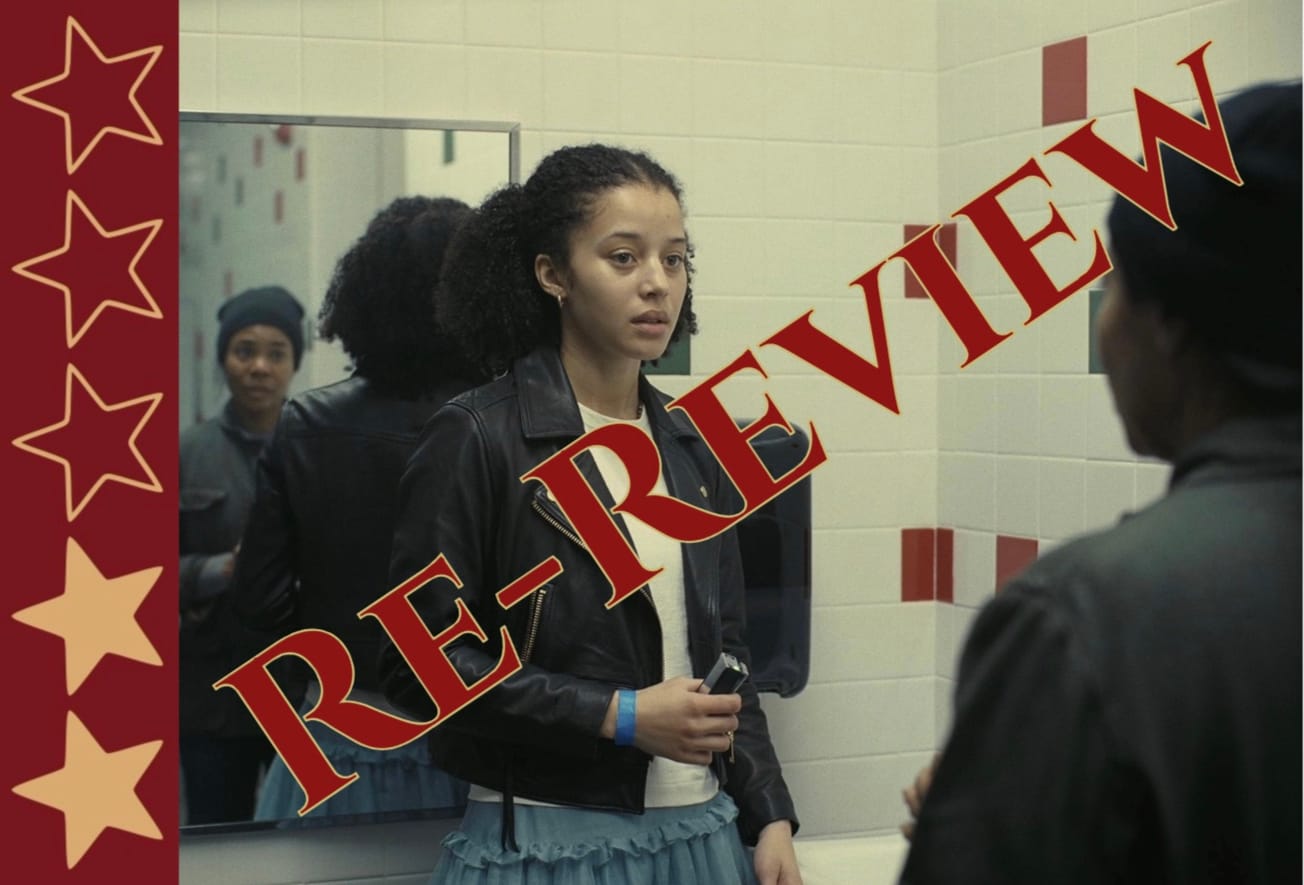By Inès de Boudemange, Third Year, Geography
To define this feeling of knowing, from the very first minutes of a two-hour-long film, that I am not ready to receive so many emotions is inevitably an impossible undertaking. Yet I had prepared myself for this homecoming with French cinema, but Saint Omer joined the short list of films that completely bewilder me, and yet provide me with so many philosophical reference points.
Saint Omer (2022) is the narration of a trial which, halfway between Sartrean philosophy and the highlighting of contemporary discourses breaking the normativity of motherhood, requires the audience to judge for themselves the facts presented.
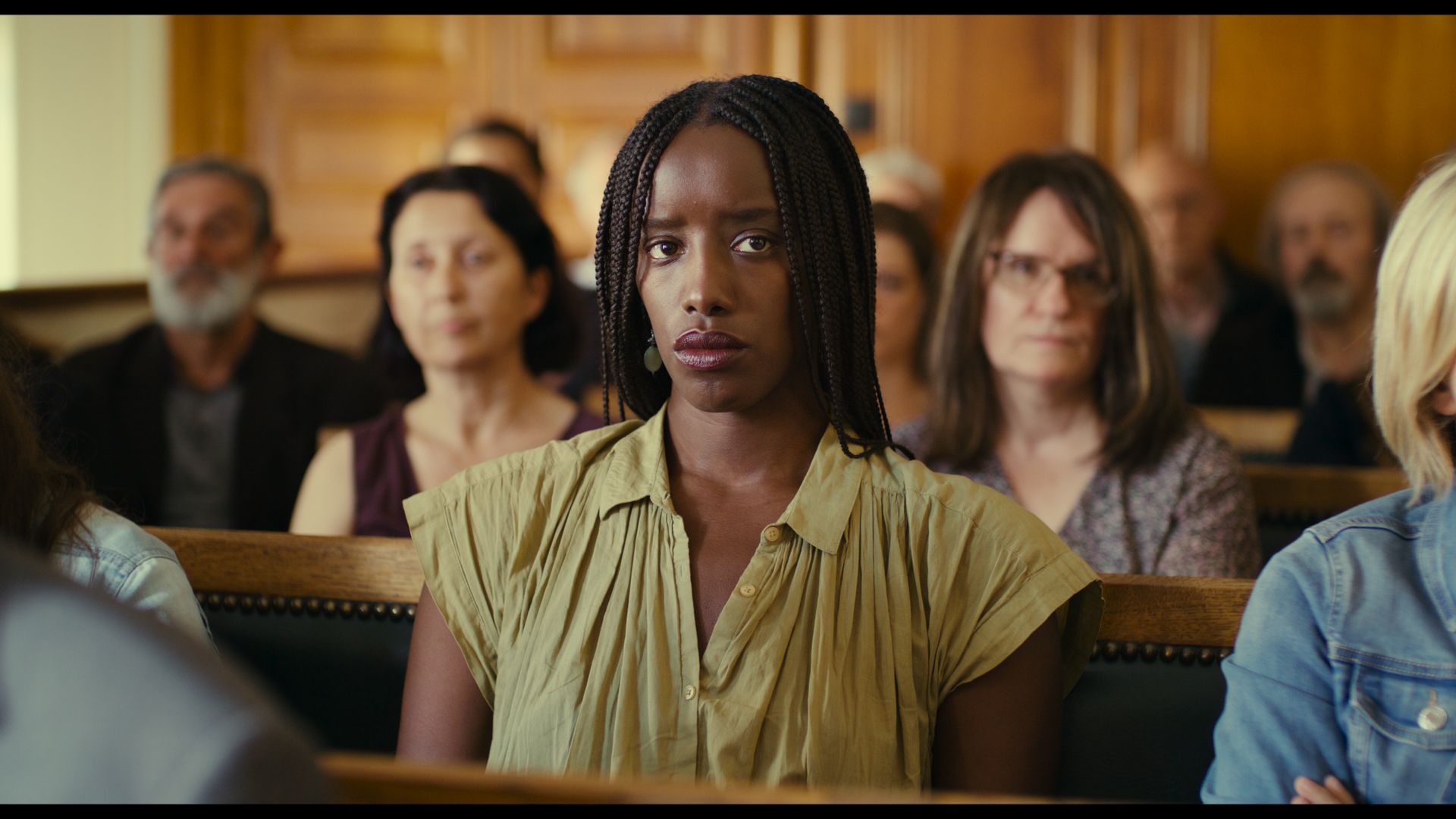
In the movie’s first speaking scene, students watch video footage of French women being shorn in the aftermath of the Second World War. These images are shown as part of a study of Marguerite Duras' novel Hiroshima Mon Amour (1960) - and this is just the beginning of a long series of literary and cultural references that will sequence Alice Diop's movie, some of which I must have missed.
Thanks to the dives into the reactions of various students and the speech of Rama, the professor who is also a novelist, about the shorn heroine ("this woman becomes not only a heroine but a subject in a state of grace"), the tone of Saint Omer is set: we, the audience in Watershed cinema room number 3, on this Monday, December 5th, will be called upon to choose whether or not to condemn a ‘morally reprehensible’ woman.
I remembered how, ten years ago, as a pupil in fifth grade, I had been led by my teacher's rhetoric to regard these women with contempt and as accomplices of a ‘bad’ morality... But what are my concerns now?
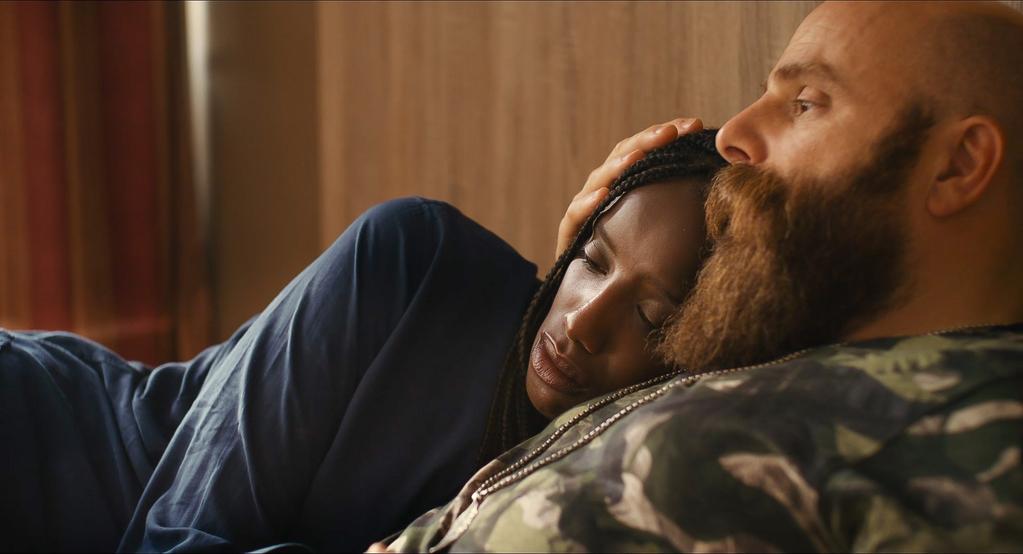
The introduction to the plot is very brief: we soon find Rama seated as part of the audience in the trial of Laurence Coly, a young woman sentenced for infanticide. Laurence took the train from Paris to Dieppe to drown her fifteen-month-old daughter because "life would be easier that way". When the judge asks her if she knows why she killed her daughter, Laurence replies, "I don't know. I hope this trial can tell me".
Unlike the shorn women’s judgments in public places, this is a case that apparently does not interest everyone, as evidenced by the multiple and missing random jurors who are challenged.
However, these hearings will not be the trial of a single act, nor will they be the trial of Laurence's examined life in its entirety, but that of a life that is part of the psychic workings of society.
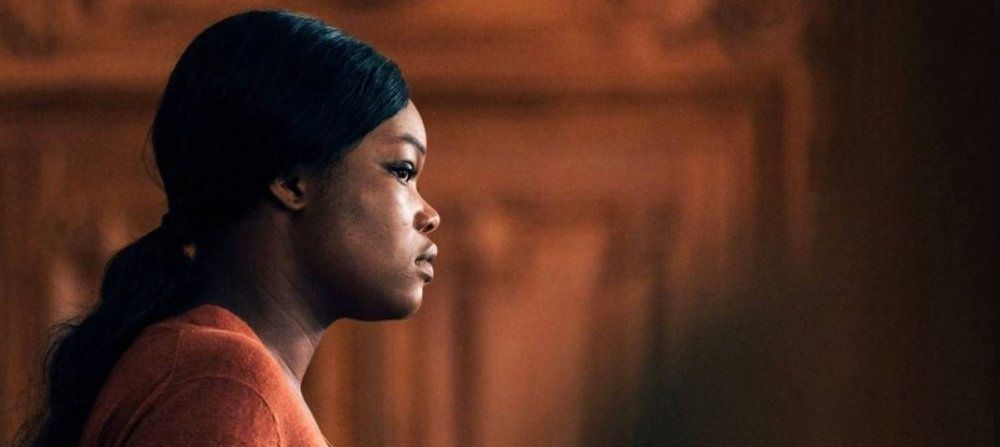
Laurence is dressed in brown, the same shade as the wooded wall in front of which she is standing, filmed from the front. Laurence is, on this day, an element of the societal setting, of the normative expectations and received ideas of this one.
She will later be filmed in profile, and her figure will stand out against a backdrop whose edges we begin to apprehend; the accused will impose herself as a philosophical outgrowth of morals, an anti-icon to raw reality.
Through breathtaking and meticulous camerawork, which is a testament to director Diop’s sharp eye, Saint Omer then offers its audience an extraordinary perspective: immersed in the breaths of all the people present at the hearing, it is up to us to sort out the rhetoric and language struggles involved, the hallucinations and chaotic relationships prior to the trial questioned.

It is up to us to choose whether or not to abandon the law and its civil code in order to apprehend humanity in its entirety, reflecting Laurence who abandoned her law studies to "become a great philosopher".
In Saint Omer, sorcery, Cartesianism, incantations, philosophical morality, and the instrumentalization of multiculturalism intertwine to create this masterpiece of cinema with its neat camera shots. And whilst I await to see Kayije Kagame (Rama) and Guslagie Malanda (Laurence) awarded at the 2023 Oscars in the category of best international film, I strongly invite you to discover Alice Diop's filmography.
Featured Image: Courtesy of IMDB
How did you feel about Laurence by the end of the film?

